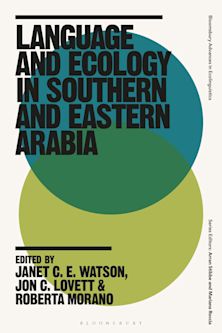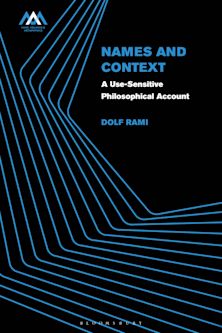- Home
- ACADEMIC
- Linguistics
- Semantics and Pragmatics
- Offensive Language
Offensive Language
Taboo, Offence and Social Control
Offensive Language
Taboo, Offence and Social Control
You must sign in to add this item to your wishlist. Please sign in or create an account
Description
Why do people take offence at things that are said? What is it exactly about an offending utterance which causes this negative reaction? How well motivated is the response to the offence?
Offensive Language addresses these questions by applying an array of concepts from linguistic pragmatics and sociolinguistics to a wide range of examples, from TV to Twitter and from Mel Gibson to Donald Trump. Establishing a sharp distinction between potential offence and actual offence, Jim O'Driscoll then examines a series of case studies where offence has been caused, assessing the nature and degree of both the offence and the documented response to it. Through close linguistic analysis, this book explores the fine line between free speech and criminal activity, searching for a principled way to distinguish the merely embarrassing from the reprehensible and the censurable. In this way, a new approach to offensive language emerges, involving both how we study it and how it might be handled in public life.
Table of Contents
1. Introduction
2. Theoretical and analytical apparatus
Part II. Potential offence: Taboo language
3. Taboo language
4. Taboo words
5. Taboo reference
6. Taboo predication
Part III. Actual offence: Case studies
7. Some more theoretical considerations
8. Offences against the person
9. Offences against 'the peace' – and social control
10. Threats to social harmony – and social control
Part IV. Reprise
11. Reporting offensive language
12. Social control and free speech
Notes
References
Index
Product details

| Published | 12 Nov 2020 |
|---|---|
| Format | Ebook (PDF) |
| Edition | 1st |
| Extent | 216 |
| ISBN | 9781350169685 |
| Imprint | Bloomsbury Academic |
| Publisher | Bloomsbury Publishing |
About the contributors
Reviews
-
The particular strengths of the book for language scholars lie in its discussions of and original contributions to taboo language theory.
Language in Society
-
Thought-provoking for students of linguistics and anyone interested in language in general.
LINGUIST List
-
The topic/remit of offensive language, as addressed in this book, is ambitious and broad-ranging. ... this text will provide a significant reference point for understanding, conceptualising and interrogating these issues, for linguists and non-linguists alike.
Journal of Pragmatics
-
O'Driscoll both synthesizes and opens up the multi-disciplinary topic of offensive language. Thought-provoking and deep yet written in an engaging style, this is a book you will remember long after you have finished reading it.
Jonathan Culpeper, Professor of English Language and Linguistics, Lancaster University, UK
-
In this timely volume, Jim O'Driscoll offers us a lucidly written, fascinating and thought-provoking trip into the various shades of offensive language. Based on theoretical depth and the analysis of riveting empirical data, the book is must-read for all those interested in impoliteness and its central concept of offence.
Maria Sifianou, Professor Emerita, National and Kapodistrian University of Athens, Greece
-
It is only human to sometimes take offence in our interactions with others. But in recent years the causing and taking of offence has become an increasing fixture of public life. In this volume, Jim O'Driscoll undertakes the first extended study of offence and provides a systematic basis for distinguishing between potential and actual offence. It is a must read for anyone interested in the role language plays in both interpersonal and public life.
Michael Haugh, Professor of Linguistics, The University of Queensland, Australia

ONLINE RESOURCES
Bloomsbury Collections
This book is available on Bloomsbury Collections where your library has access.

































